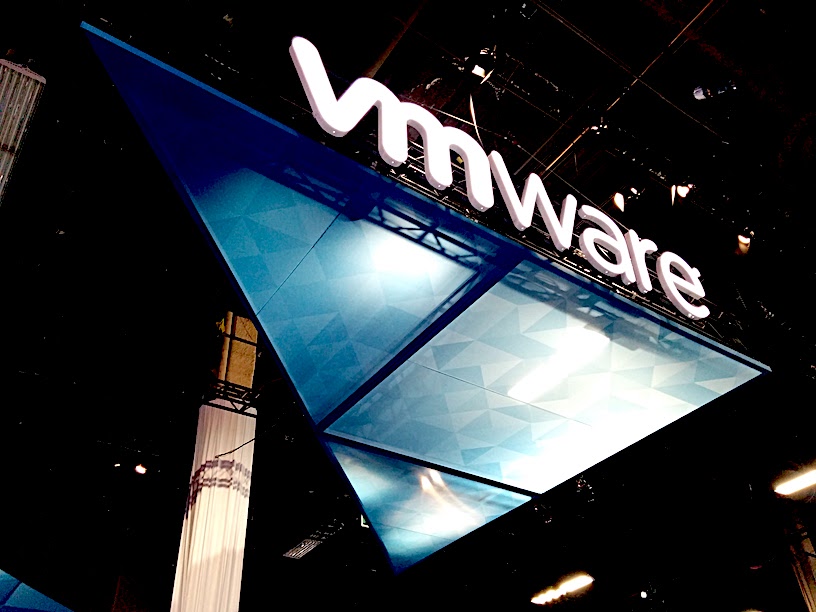 CLOUD
CLOUD
 CLOUD
CLOUD
 CLOUD
CLOUD
In a continuing bid to help data centers become more cloudlike, VMware Inc. today said it plans to acquire Avi Networks Inc. for an undisclosed price.
Avi provides application delivery services to large enterprises such as Deutsche Bank, Cisco Systems Inc. and Adobe Systems Inc. with what it calls a multicloud fabric, in particular helping balance application loads across data centers and public clouds. The idea with the acquisition is to bring more of the flexible, on-demand experience of public clouds to enterprise data centers in an automated and scalable way, resulting in what the two companies said will be the industry’s only complete software-defined networking stack.
The deal is expected to be completed in VMware’s fiscal 2020 second quarter, which closes Aug. 2, and won’t have a material impact on 2020 operating results. Avi had raised $115 million in four rounds since 2012 from the likes of Greylock, Lightspeed Venture Partners and Menlo Ventures, according to Crunchbase.
VMware, a publicly traded company majority-owned by Dell Technologies Inc., provides “virtualization” software to enable multiple “virtual” computer systems on single computers, making data centers more flexible and efficient. Its software is used in virtually every data center of any size, and the company has been building up its links to cloud computing for years now, including a landmark partnership with Amazon Web Services in late 2016.
This is another way VMware aims to help companies manage their information technology infrastructures, whether they’re on-premises in data centers or in the cloud. “The deal highlights VMware’s fundamental shift from being the experts companies depend on for mission-critical virtualization to becoming the vendor of choice for enterprises moving to hybrid and cloud computing,” analyst Charles King of Pund-IT Inc. told SiliconANGLE.
“VMware is committed to making the data center operate as simply and easily as it does in the public cloud, and the addition of Avi Networks to the growing VMware networking and security portfolio will bring us one step closer to this goal after the acquisition closes,” Tom Gillis, senior vice president and general manager of VMware’s networking and security business unit, said in a statement.
In particular, he added, “this acquisition will further advance our Virtual Cloud Network vision, where a software-defined distributed network architecture spans all infrastructure and ties all pieces together with the automation and programmability found in the public cloud.” Combining Avi Networks with VMware’s NSX, Gillis said, will “further enable organizations to respond to new opportunities and threats, create new business models, and deliver services to all applications and data, wherever they are located.”
In a press call this afternoon, Gillis said Avi specifically provided one key aspect of networking, load balancing. Once the deal closes, VMware said, it will offer both the built-in load balancing capabilities as part of VMware NSX Data Center, and a standalone application delivery controller. He said he expects VMware to offer Avi products on its price list within 90 days of the deal’s close.
Amit Pandey, Avi Network’s chief executive, said that the company’s signature distributed applications development controller “mirrors cloud principles” to provide software-defined application networking and security services, on-demand elasticity, real time insights, simplified troubleshooting and developer self-service.
The backdrop for all this is that companies increasingly need to deliver and update applications faster and more consistently across multiple clouds, requiring more automated networking and security services across private and public clouds. Older ADCs, even those that are tweaked to run on virtual machines such as those provided by VMware, can’t scale up or provide adequate security in distributed cloud environments, resulting in overuse of services, higher costs and slower troubleshooting.
Avi said its platform helps organizations overcome the complexity of older systems and ADC appliances with modern, software-defined application services. Specifically, once the deal closes, VMware said, it will offer both the built-in load balancing capabilities as part of VMware NSX Data Center, and a standalone application delivery controller.
The Avi platform provides a number of services: a Software Load Balancer, Intelligent Web Application Firewall, Advanced Analytics and Monitoring and a Universal Service Mesh. Avi’s central control plane and distributed data plane, according to the company, deliver application services as a dynamic, multicloud fabric that automates decisions and provides more analytics and elastic demand. The technology runs across private and public clouds and supports applications running on virtual machines, software containers that enables applications to run unchanged in different computing environment, and bare-metal servers without preinstalled software on them.
Acquiring Avi is a smart move for VMware,” said Pund-IT’s King. “Traditional load balancing mainly focused on managing servers to ensure that applications have the system resources necessary for optimal performance. But that task is exponentially more complex and difficult in workloads running both on prem and in clouds.”
Support our mission to keep content open and free by engaging with theCUBE community. Join theCUBE’s Alumni Trust Network, where technology leaders connect, share intelligence and create opportunities.
Founded by tech visionaries John Furrier and Dave Vellante, SiliconANGLE Media has built a dynamic ecosystem of industry-leading digital media brands that reach 15+ million elite tech professionals. Our new proprietary theCUBE AI Video Cloud is breaking ground in audience interaction, leveraging theCUBEai.com neural network to help technology companies make data-driven decisions and stay at the forefront of industry conversations.